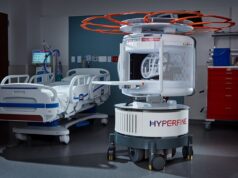 Hyperfine has announced completed enrolment for HOPE PMR—a multicentre, observational pilot study assessing portable magnetic resonance imaging (MRI) in children with neurological injury, using hydrocephalus as an index condition.
Hyperfine has announced completed enrolment for HOPE PMR—a multicentre, observational pilot study assessing portable magnetic resonance imaging (MRI) in children with neurological injury, using hydrocephalus as an index condition.
With the aim of exploring a safer, more accessible solution for hydrocephalus patients, the HOPE PMR study is assessing the feasibility of integrating Hyperfine’s Swoop system—a brain-imaging solution with zero ionising radiation that is accessible at a child’s bedside—into routine inpatient, outpatient and emergency paediatric care settings.
The study used paediatric hydrocephalus as an index condition to assess if Swoop system images can be deployed to accurately detect shunt malfunctions and assess ventricular size.
“The Swoop system represents a promising shift in brain imaging. We believe it has the potential to improve paediatric hydrocephalus management significantly,” said Khan Siddiqui, chief medical officer and chief strategy officer at Hyperfine. “The insights gathered from this study will inform the viability of the Swoop system in paediatric healthcare settings and patient care.”
“With the completion of the enrolment phase of the study, we are now embarking on the critical task of data analysis and academic publication preparation,” added Jeffrey Leonard (Nationwide Children’s Hospital, Columbus, USA). “Our collaboration with Hyperfine paves the way for improvements in brain imaging, benefitting this vulnerable patient population.”









